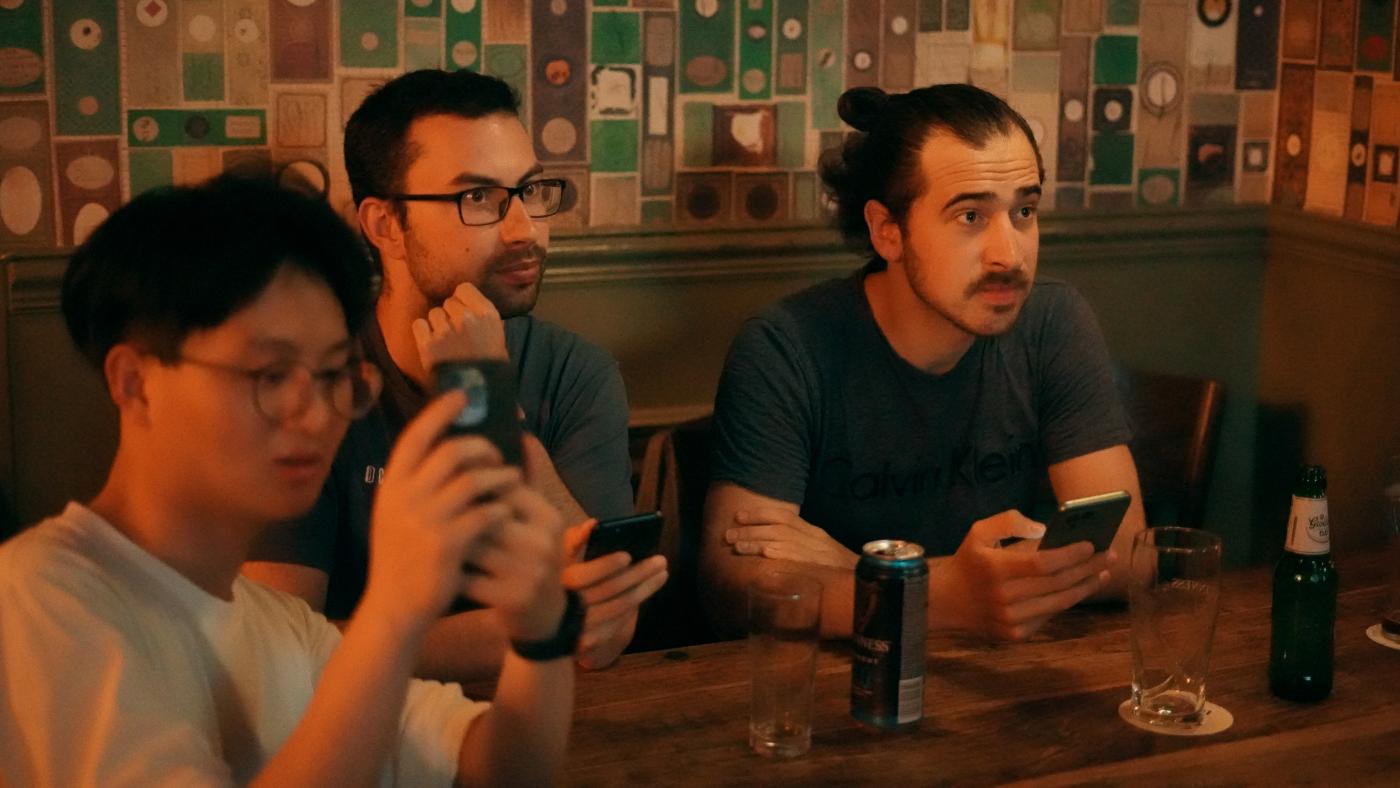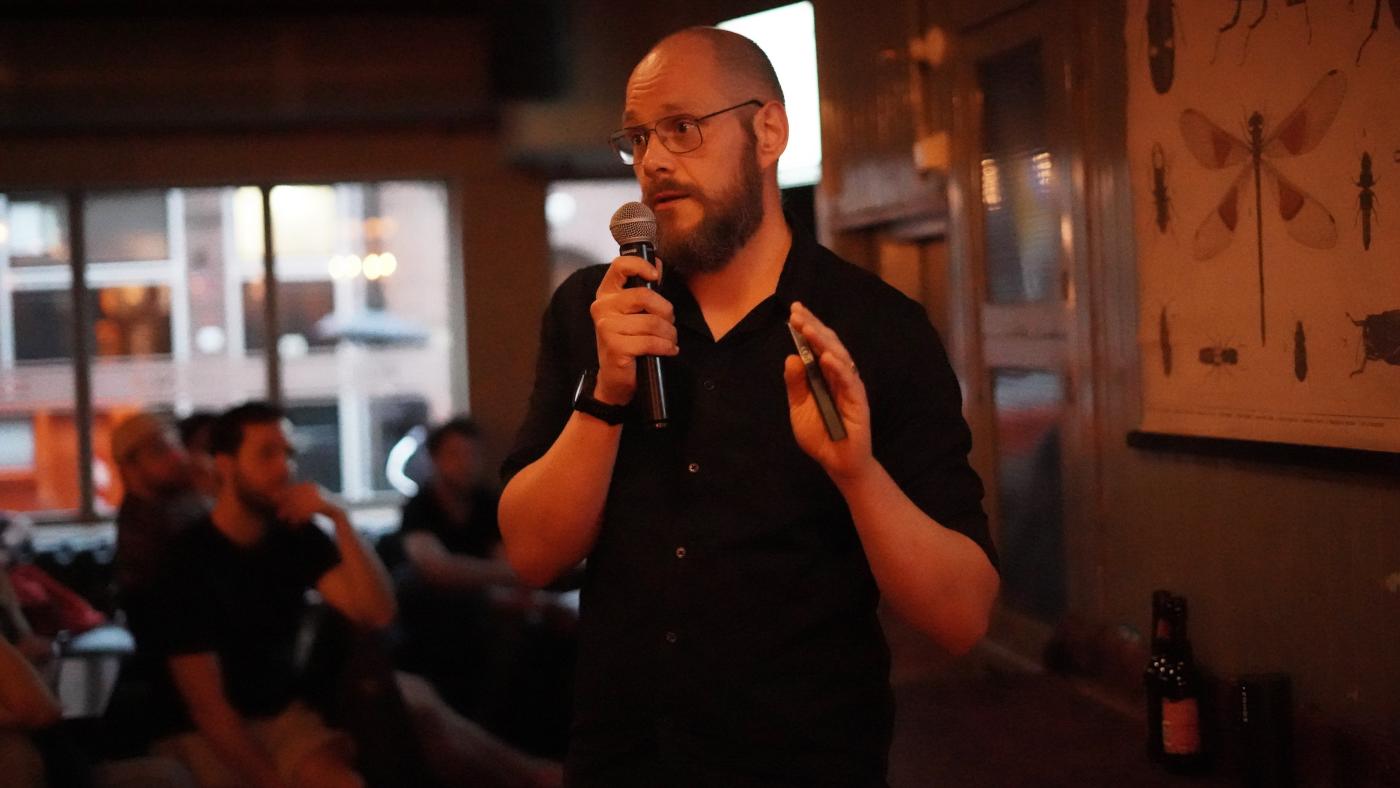Pint of Science Festival
'Beer can make a scientific topic feel more accessible'

In the back of O’Connells’, a projector was set up, displaying ozone global and regional maps captured by satellites, accompanied by explanations provided by experts. Meanwhile people were sipping on pints of beer, some still full and others in need of a refill.
Among facts and drinks, insights and reflections on the importance of ozone for human life were discussed by the sicientists Edwin Pos, Katrien Van Riet, and Serena di Pedi, seeking to address how to make better air-quality informed decisions given the ongoing climate crisis.
A topic that, although relevant for everybody, may sound overly technical and complicated for many. But with a pint, some nice company and an informal setting, it becomes a whole other story.
“The concept behind Pint of Science is to show that science does not have to be boring. People often picture it as a very distant and inaccessible domain that belongs only to labs, but this is not true” says the event manager Joaquin Montilla Rojo, who is currently doing his PhD in stem cell biology.

Associate Professor Edwin Pos is specialized in Ecology en Biodiversity. Photo Raquel Ledo Doval
The idea existed in England in 2012 where two scientists from Imperial College London organized a meeting called "Meet the Researchers. They invited patients with Alzheimer's, Parkinson's or muscle disease to their laboratory. It got the researchers thinking. If people want to come to the laboratory to meet scientists, why not bring the scientists to the people? And so began Pint of Science. May 13 to 15, the festival took place simultaneously in twenty-five countries including the Netherlands which alone had ten venues.
“I have been involved in Pint of Science for a couple years now and I have seen an increase in participation and turnout, even from people who do not have a scientific background. This is why I think this format works well. It brings people closer to science without getting too intimidated by the specific knowledge it entails. They can just grab a beer, have a chat and learn new things” he continues.
The lecture this evening was about the European Space Agency (ESA) that has been dedicated to observing the Earth from space to better understand the complexities of our planet, particularly with respect to global changes. In this talk, the focus was specifically on ozone an its influence on huma life. Being present both in the stratosphere, as “good ozone”, protecting the planet from the damaging solar ultraviolet radiation, and in the troposphere, as “bad ozone”, affecting humans, plants and ecosystems, ozone is one of the most important trace gases in the Earth’s atmosphere.
Everyone in the room seemed to be very interested in the discussion, engaging with questions that ranged from being very specific to more basic, touching upon the different regions of the atmosphere to the reasons that make the weather so unpredictable.
The overall energy was lively and cozy, and the short breaks from the scientific presentation were filled with a vibrant loud chatter, courtesy of alcohol.
“Science is by itself a very complex topic, but a beer can indeed make it feel more accessible and informal. The purpose of these events is to make it understandable, and being in a very chill setting really helps” adds Raquel Ledo Doval, the city coordinator of Pint of Science, who is currently doing her PhD in biotechnology.

Pint of Science is a global initiative designed to bring science closer to people. “Back in Spain I was involved in the festival activities for a couple years, and then when I moved to the Netherlands to pursue my studies I wanted to keep contributing because I find it a very cool concept. I myself have a lot of fun during the events, and it is nice to see that more and more people do so too ” she concludes.
For some, this was already their second or third time attending the festival, which this year marked its sixth edition in Utrecht.
“I think that organizing a social event like this and linking it to science is such a smart move. You are relaxed, in a good mood and more eager to actively engage. It’s not like in a class where you feel pressured to listen, here you can do it spontaneously” says a student who is already at his third edition of the festival.
For others, it was a completely new experience, and yet, a pleasant surprise. “I came here thinking that it would just be a talk about the environment and a glass of beer, but it turned out to be very interesting and fun. I got to talk with a bunch of new people, and I go home having learned something new about the atmosphere” says a visitor. “I had absolutely no expectations about this festival, but I am glad I checked it out. I am definitely coming back next year even if I don’t master science that much.”
Of special attention was the presence of a young couple with a dog. The dog, like the other guests, sat quietly staring at the projector. One visitor said: "I wonder what took the dog. He looked so focused and didn't make a sound. He seemed just as interested as the other visitors."